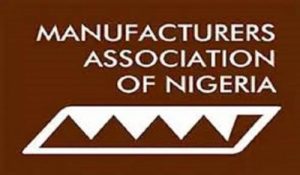Integrated energy major Royal Dutch Shell plc’s RDS.A Nigerian division, Shell Petroleum Development Company, has shut down its Trans Niger Pipeline at Gio in Ogoni due to a recent fire. This pipeline feeds into Nigeria’s strategic Bonny Export Terminal.
The shutdown is expected to lower Shell’s Nigerian exports by 180,000 bpd. Shell Petroleum Development has shut down the pipeline as a precautionary measure in order to determine the cause and impact of the fire.
The Trans Niger Pipeline is one of two major pipelines that carry the Bonny Light crude grade for export to its Forcados terminal in the Niger Delta. The pipeline was first shut down in Jul 2016 following a leak at the same location in Ogoni land.
Shell’s other major export terminals in Nigeria and Forcados were closed in February due to attacks by militants. These repeated militant attacks have caused the Nigerian oil production to decline from 2.1 million barrels a day to 1.7 million barrels.
Headquartered in The Hague, the Netherlands, Shell is one of the largest integrated oil and gas companies in the world. It explores for and extracts crude oil, natural gas and natural gas liquids. It has interests in chemicals as well as power generation and renewable energy.
Predictably, the commodity price slump has adversely affected Shell’s financials, particularly at its upstream unit. Furthermore, Shell’s revenues, earnings and cash flow have been significantly hurt by weak natural gas prices. Attacks on the company’s local establishments by the Nigerian militants have added to its woes.
Energy
Govt Plans to Sell 5 Out of 49% of its NLNG Shares via Repurchase Option
NLNG Logo
Even though the Federal Government through the Minister of Information, Alhaji Lai Mohammed has denied plans to NLNG, saying government is only receiving options for way out of recession; indications are rife that the apex government may have concluded plans to sell at least five per cent of its shares in the Nigeria Liquefied Natural Gas company.
The Federal Government currently owns 49 per cent shares in the company, while private firms own the remaining 51 per cent.
A Presidency source said, “The Federal Government is open to the possibility of selling down its 49 per cent ownership by five per cent or thereabouts.”
While noting that the decision had yet to be finalized, the source added that as in other potential assets sales, there would be a repurchase option that would guarantee the Federal Government an opportunity to buy back such assets if circumstances changed anytime in the future.
The government wants to raise between $10bn and $15bn from assets sale.
The source added further that “Some of the intended sales could be in form of time-bound leases, advance renewal payments on leasing licences and concessions, which will attract buoyant signature fees.
“If we even want to sell certain assets, while our target is to get foreign currencies, specifically dollars, the option will also be opened to Nigerians at some point to buy limited shares through the Nigerian Stock Exchange.”
“We are entering into some concessions like that of the East-West lines of the Nigerian Railways. General Electric will be the concessionaire, and for which the global giant will invest $2bn in the Nigerian economy, including for the refurbishment of the single-gauge lane of the lines that have been largely left idle for years.
“GE, under the deal, is expected to hire back some of the laid-off staff of the Nigerian Railway Corporation, and also open a Transport University in Nigeria, while building and assembling train coaches here in Nigeria.
“Under the deal, the government will also receive signature fees in foreign currencies as it would in other assets that will be subjected to concession.
“The important thing to keep in mind is that the sale of some of the assets is an option to raise the much needed dollars at a critical time for the Nigerian economy.









